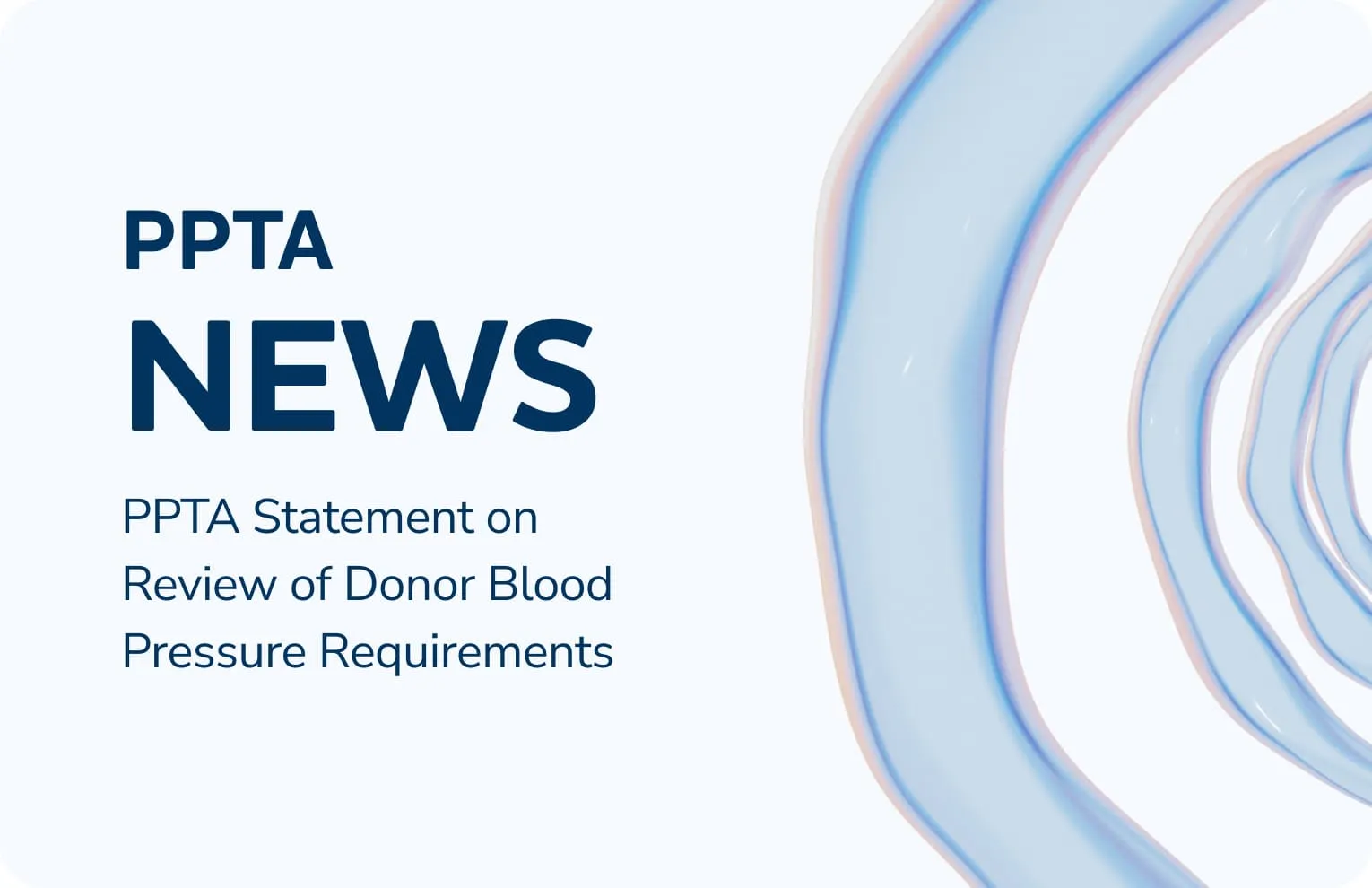The Plasma Protein Therapeutics Association (PPTA) is aware of emerging reports regarding patients not having reliable access to lifesaving plasma-derived therapies used to treat a variety of serious, rare, and chronic conditions caused by missing or deficient proteins in their blood. While there could be many reasons for these access challenges, the fact remains that for most of these conditions, plasma is the only starting material for effective therapies.
As such, PPTA repeats its calls for all healthy adults to donate plasma at one of the more than 1,100 donation centers throughout the United States and in four European countries. Additionally, considering the European Union relies on plasma from the U.S. for approximately 30% of its plasma-derived therapies, PPTA continues to advocate for policies that encourage more donation opportunities throughout the EU.
The effects of the COVID-19 pandemic on plasma donation continue into this year, as the average number of donations per center across the U.S. in the first few months of 2021 were down approximately 11% compared to last year, further deepening the nearly 20% decline in donations in 2020 compared to 2019. This ongoing reduction in donations comes despite there being approximately 100 new donation centers in the U.S.
Decreased plasma donations mean serious health consequences for the hundreds of thousands of men, women, and children living with these conditions, as well as countless others facing trauma and emergency medical needs every day. Considering the complex manufacturing process to fractionate plasma into the therapies patients rely on can take 7-12 months, any decline in donations is concerning. Quite simply, plasma donors save lives.
Compounding the effects of the ongoing declines in donations, the clinical need for plasma-derived therapies continues to grow. Improved diagnostic techniques identify patients earlier, allowing them to access appropriate medicines earlier in life. As those children grow, however, their dosage volumes increase. With more people diagnosed, and at earlier ages than previously possible, more people are living longer, healthier lives, which ultimately leads to increased use of immunoglobulin products. Further, expanded treatment of secondary infections has helped cancer patients, but also requires more immunoglobulin.
PPTA continues to monitor the situation, and to advocate for expanding the plasma collection ecosystem at the regional, national, and international level as we all remain focused on ensuring all those who need plasma-derived therapies have access to them.
Please visit ItsInUsAllToSaveALife.org to learn more and to support PPTA’s call for Europe to collect more plasma and visit DonatingPlasma.org to find a donation center near you.
Created on September 23 2021.





